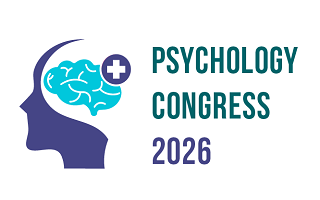3rd International Congress on
Psychology & Behavioral Sciences
March 26-27, 2026 | Osaka, Japan

Address: 1 Chome-9-15 Shinkitano, Yodogawa Ward, Osaka, 532-0025, Japan.
Psychology Congress 2026

All India Institute of Medical Sciences, India
Abstract:
Objective: A cross-sectional single blinded study was conducted to develop and test the efficacy of a telephonic psychotherapy on PD Patients. PD patients bound by movement and commuting restrictions have a limited access to healthcare facilities. The collateral damage caused to the Quality of life (QoL) is worsened by lack of access to in-person psychological care. The objective was to re-negotiate the terms of psychological healthcare with the use of information technology for PD patients.
Background:The prevalence of PD has doubled in the past 25 years. In 2019, PD resulted in 5.8 million disability adjusted life years (DALYs), an increase of 81% since 2000, and caused nearly 329000 deaths, an increase of over 100% since 2000 (WHO, 2023). The psychotherapy module developed aimed to address motor, cognitive and psycho-social symptoms caused by the neurodegenerative condition. It involved cognitive retraining exercises and lifestyle recommendations. The culture-specific intervention involved focused on caregiver involvement, shift in family dynamics and shift of locus of control of patients to within themselves.
Methods: The intervention was developed in three phases. A nation-wide, zone stratified survey was conducted to gauge the problems faced by PD patients and their families. This was followed by thematic analysis of physical, cognitive, behavioral and emotional disturbances found in a systematic review and a focal group discussion among six experts. The feasibility of the developed module was tested in a pilot study. The efficacy of the six week psychotherapeutic intervention was tested with a RCT. A total of 141 patients were screened, out of which 47 were recruited and randomized into Intervention and Control group. The domains of anxiety, stress,orientation, memory, comprehension, attention, vigilance, language, calculation, executive functioning &QoLwere assessed at baseline, one month and three months follow up.
Result: The psychotherapeutic intervention brought about a statistically significantimprovement in the domains ofStress (p=0.001) &Anxiety (p=o.o21), Attention & Orientation (p=0.043) and Memory (p=0.003) in the IG. Improvement in performance on EF suggests an effect on abilities of mental set shifting, processing speed, selective attention capacity, and interference inhibition.Improvement was also seen in Executive functioning (EF) & Calculation (p=0.688),
Biography:
Dr. Ashima Nehra is a distinguished professional at the All India Institute of Medical Sciences (AIIMS) in New Delhi. With expertise in her field, she is dedicated to advancing medical knowledge and providing exceptional care to patients through innovative research and clinical practice.
